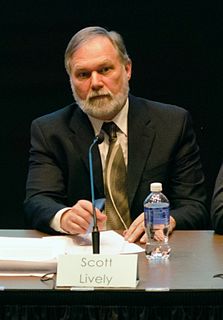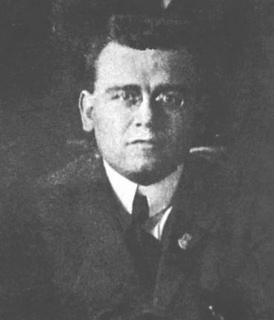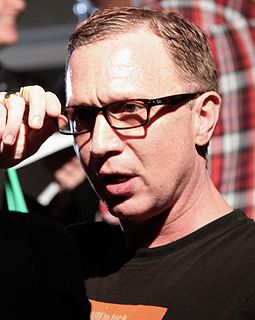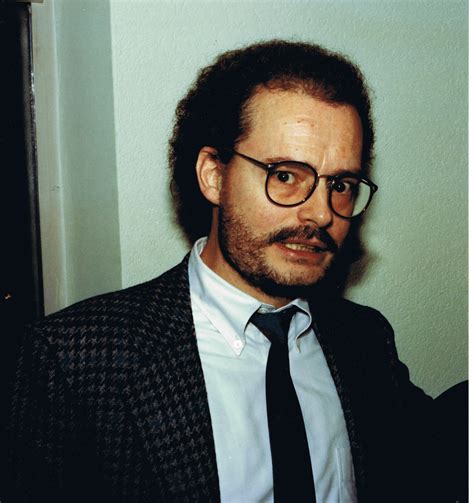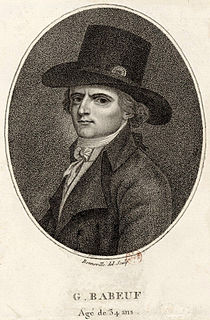A Quote by Michel Houellebecq
It is interesting to note that the "sexual revolution" was sometimes portrayed as a communal utopia, whereas in fact it was simply another stage in the historical rise of individualism. As the lovely word "household" suggests, the couple and the family would be the last bastion of primitive communism in liberal society. The sexual revolution was to destroy these intermediary communities, the last to separate the individual from the market. The destruction continues to this day.
Quote Topics
Another
Communal
Communism
Communities
Couple
Day
Destroy
Destruction
Fact
Family
Historical
Household
In Fact
Individual
Individualism
Interesting
Intermediary
Last
Liberal
Lovely
Market
Note
Portrayed
Primitive
Revolution
Rise
Separate
Sexual
Sexual Revolution
Simply
Society
Sometimes
Stage
This Day
Utopia
Whereas
Word
Would
Would Be
Related Quotes
We've seen the transformation of America, when at the pinnacle of its Christianity was probably in the 1950s. Ever since then it has been declining, why? Because of the sexual revolution. Where did the sexual revolution come from? The sexual revolution came from the activists of the American gay movement.
The degeneration of the revolution in Russia does not pass from the revolution for communism to the revolution for a developed kind of capitalism, but to a pure capitalist revolution. It runs in parallel with world-wide capitalist domination which, by successive steps, eliminates old feudal and Asiatic forms in various zones. While the historical situation in the seventeenth, eighteenth and nineteenth centuries caused the capitalist revolution to take liberal forms, in the twentieth century it must have totalitarian and bureaucratic ones.
First, what is a revolution? Sometimes I'm inclined to believe that many of our people are using this word "revolution" loosely, without taking careful consideration [of] what this word actually means, and what its historic characteristics are. When you study the historic nature of revolutions, the motive of a revolution, the objective of a revolution, and the result of a revolution, and the methods used in a revolution, you may change words. You may devise another program. You may change your goal and you may change your mind.
The great paradox of the civil rights revolution is that instead of enforcing and expanding equality before the law, the revolution created differential rights based on race, gender and, any day now, sexual orientation. The great liberal revolution, centuries in the making, that brought forth equality in law has been overthrown. In its place we see rising a new feudal legal order of status-based rights.
Interesting, isn't it, that even though more than two and a half decades have passed since the sexual revolution brought women a new measure of sexual freedom, there's still no word in the language that doesn't reek with pejorative connotation to describe a woman who has sex freely. Since language frames thought and sets its limits, this is not a trivial matter. For without a word that describes without condemning, it's hard to think about it neutrally as well. When we say the words 'promiscuous woman,' therefore, it's a statement about her character, not just her sexual behavior.
The last thing the consumer index wants men and women to do is to figure out how to love one another: The $1.5 trillion retail-sales industry depends on sexual estrangement between men and women, and is fueled by sexual dissatisfaction. Ads do not sell sex--that would be counterproductive, if it meant that heterosexual women and men turned to one another and were gratified. What they sell is sexual discontent.
A Marxist begins with his prime truth that all evils are caused by the exploitation of the proletariat by the capitalists. From this he logically proceeds to the revolution to end capitalism, then into the third stage of reorganization into a new social order of the dictatorship of the proletariat, and finally the last stage -- the political paradise of communism.
An intelligent couple can read their Darwin and know that the ultimate reason for their sexual urges is procreation. They know that the woman cannot conceive because she is on the pill. Yet they find that their sexual desire is in no way diminished by the knowledge. Sexual desire is sexual desire and its force, in an individual's psychology, is independent of the ultimate Darwinian pressure that drove it. It is a strong urge which exists independently of its ultimate rationale.

